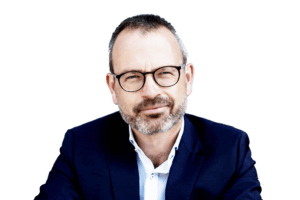Opinion
The Valley of Life: The future starts now!
Søren Bregenholt
This article is more than 5 years old.

One brain can make the difference, but it’s the cluster around it that counts (photo: Pixabay)
What we did in the past prepared us for now. Let us now prepare for the future.
Game-changer
That SARS-Cov-2, or the coronavirus, has changed our lives in so many ways is maybe obvious to most. So is the fact that mankind needs a vaccine to prevent the virus from spreading, along with medication to treat those infected and suffering from covid-19.
Across the globe the best minds from nearly all sectors – academia, hospitals, industry etc – are working hard to crack the corona riddle, and every day new data and insight bring us one step closer to a hopeful breakthrough.
Leading pharmaceutical companies and the world´s most renowned research labs have joined forces to accelerate the development of several vaccine candidates. And while the covid-19 has significantly changed the way we work and collaborate, we see an unprecedented level of collaboration across the triple helix of hospitals, academia and industry in the Danish-Swedish Medicon Valley life science cluster, aiming to address all aspects of drug development, from research tools to manufacturing.
Let me mention a couple of specific examples at a risk of serving injustice to all initiatives not explicitly mentioned.
Awash with initiatives
A team of 15 leading scientists from the University of Copenhagen are working to develop a vaccine, while Rigshospitalet is leading a group of 16 hospitals exploring a potential treatment for covid-19-related lung damage.
In the private sector, Copenhagen-based Immunitrack is working to develop a peptide-based vaccine, Lund-based companies such as Red Glead Discovery are experimenting with different types of vaccines, and Amniotics is working to develop a lung stem cell against covid-19.
These are just some of the promising initiatives in the region.
It’s a team effort
Right now, it is crucially important that we rally to increase scientific and medical insight to increase the chance of discovering a cure. In the long run it is not important to mankind exactly who eventually wins the race, or what specific medication or combination of treatments will be effective in patients suffering from severe covid-19.
What is important in the long run is that we acknowledge the contribution of both industry, public research and the hospital sector in developing the life-saving medicines and treatments for many acute and chronic diseases. It was these contributions that during the last century helped create the high life expectancy and quality of life that we have come to take for granted.
Collaboration is crucial
It is also important that we acknowledge that the continued investment in public research and the hospital sector, as well as a strong collaboration across the public and private sectors, is needed to be able to address healthcare challenges in the future.
Furthermore, the last couple of months have demonstrated the importance of being able to collaborate across national borders to effectively utilise expertise and resources and secure a qualified response to future healthcare challenges.
This just so happens to also be the founding idea of the Medicon Valley cluster. Hopefully, visionary politicians will keep that in mind when they decide how to invest.

About
Søren Bregenholt
As the chairman of the Medicon Valley Alliance – the gold-labelled Danish-Swedish life science cluster organisation – Søren will address current trends and challenges in the sector.










































